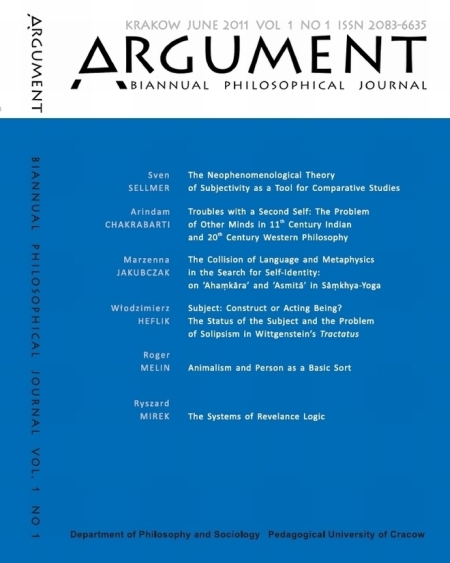Troubles with a Second Self: The Problem of Other Minds in 11th Century Indian and 20th Century Western Philosophy
Keywords:
analytic philosophy, comparative philosophy, Indian philosophy, Shaiva philosophy, other minds, self, self-knowledge, subjectivity, knowledge of the second person, the theory-theory, the simulation theory, the theory of direct empathy, Abhinavagupta, personal identityAbstract
In contemporary Western analytic philosophy, the classic analogical argument explaining our knowledge of other minds has been rejected. But at least three alternative positive theories of our knowledge of the second person have been formulated: the theory-theory, the simulation theory and the theory of direct empathy. After sketching out the problems faced by these accounts of the ego’s access to the contents of the mind of a “second ego”, this paper tries to recreate one argument given by Abhinavagupta (Shaiva philosopher of recognition) to the effect that even in another’s body, one must feel and recognize one’s own self, if one is able to address that embodied person as a “you”. The otherness of You does not take away from its subjectivity. In that sense, just as every second person to whom one could speak is, first, a person, she is also a first person. Even as I regret that I do not know exactly how some other person is feeling right now, I must have some general access to the subjective experience of that other person, for otherwise what is it that I feel so painfully ignorant about? My subjective world is mine only to the extent that I recognize its continuity with a sharable subjective world where other I-s can make a You out of me.


